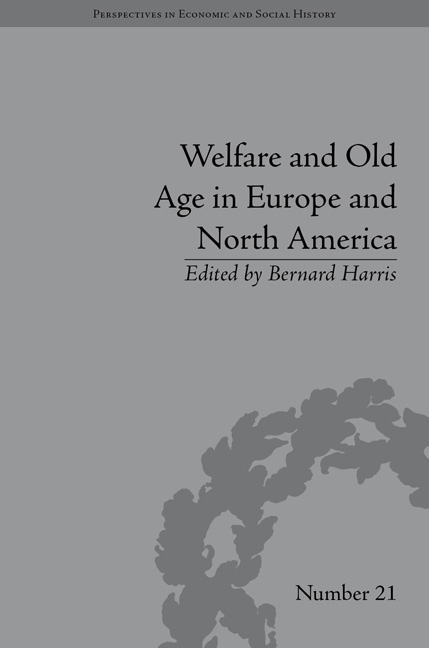Book contents
- Frontmatter
- CONTENTS
- List of Figures
- List of Tables
- Notes on Contributors
- Introduction
- 1 Coalminers, Accidents and Insurance in Late Nineteenth-Century England
- 2 The Costs and Benefits of Size in a Mutual Insurance System: The German Miners’
- 3 A New Welfare System: Friendly Societies in the Eastern Lombardy from 1860 to 1914
- 4 Economic Growth and Demand for Health Coverage in Spain: The Role of Friendly Societies (1870–1942)
- 5 Sickness Insurance and Welfare Reform in England and Wales, 1870–1914
- 6 From Sickness to Death: Revisiting the Financial Viability of the English Friendly Societies, 1875–1908
- 7 America's Rejection of Government Health Insurance in the Progressive Era: Implications for Understanding the Determinants and Achievements of Public Insurance of Health Risks
- 8 Medical Assistance Provided by La Conciliación, a Pamplona Mutual Assistance Association (1902–84)
- 9 In it for the Money? Insurers, Sickness Funds and the Dominance of Not-for-Profit Health Insurance in the Netherlands
- 10 Belgian Mutual Health Insurance and the Nation State
- Notes
- Index
5 - Sickness Insurance and Welfare Reform in England and Wales, 1870–1914
- Frontmatter
- CONTENTS
- List of Figures
- List of Tables
- Notes on Contributors
- Introduction
- 1 Coalminers, Accidents and Insurance in Late Nineteenth-Century England
- 2 The Costs and Benefits of Size in a Mutual Insurance System: The German Miners’
- 3 A New Welfare System: Friendly Societies in the Eastern Lombardy from 1860 to 1914
- 4 Economic Growth and Demand for Health Coverage in Spain: The Role of Friendly Societies (1870–1942)
- 5 Sickness Insurance and Welfare Reform in England and Wales, 1870–1914
- 6 From Sickness to Death: Revisiting the Financial Viability of the English Friendly Societies, 1875–1908
- 7 America's Rejection of Government Health Insurance in the Progressive Era: Implications for Understanding the Determinants and Achievements of Public Insurance of Health Risks
- 8 Medical Assistance Provided by La Conciliación, a Pamplona Mutual Assistance Association (1902–84)
- 9 In it for the Money? Insurers, Sickness Funds and the Dominance of Not-for-Profit Health Insurance in the Netherlands
- 10 Belgian Mutual Health Insurance and the Nation State
- Notes
- Index
Summary
During the last two decades, historians and social scientists have paid increasing attention to the history of friendly societies and other forms of mutual support. In Britain, authors such as Eric Hopkins, David Neave, Martin Gorsky, Simon Cordery and Daniel Weinbren have examined the role played by friendly societies both as cultural organizations and as sources of welfare support, and Weinbren has also explored the relationship between friendly societies and philanthropy. Nor has interest been confined to purely historical circles. In recent years, commentators on both left and right have attempted to invoke the vibrancy of Britain's mutualist tradition as an alternative to the ‘top-down’ welfare state.
One of the most important issues raised by these debates has been the relationship between mutualism in general, and the friendly societies in particular, and the growth of state welfare in the early years of the twentieth century. The friendly societies played a central role in the process because of their own responsibility for the provision of both sickness insurance and pension benefits. This chapter begins by looking at the societies’ own attempts to estimate welfare needs by examining their efforts to measure the sickness experience of their members. It then goes to review the role played by the societies in the introduction of both old age pensions and national health insurance.
Sickness Experience
During the eighteenth and nineteenth centuries, friendly societies played a key role in protecting the working-class population from the economic risks associated with sickness, old age and death.
- Type
- Chapter
- Information
- Welfare and Old Age in Europe and North AmericaThe Development of Social Insurance, pp. 89 - 106Publisher: Pickering & ChattoFirst published in: 2014



